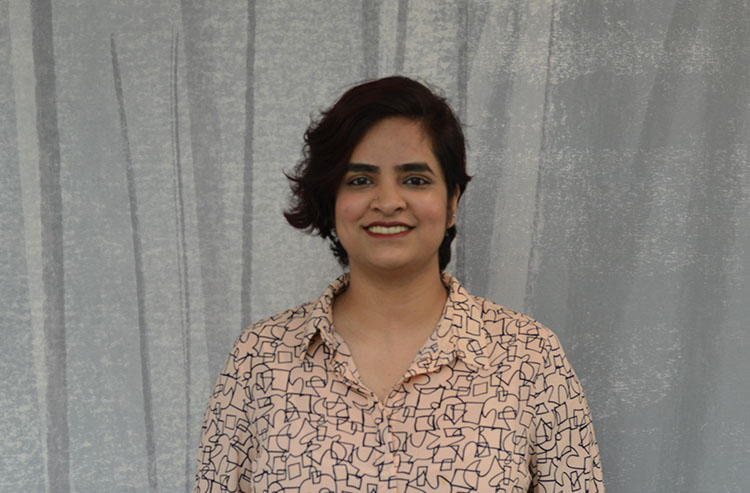In our ‘10 Questions’ series, KBS catches up with PhD students to find out about their research experience. This month, we put our questions to PhD student Arifa Syed.
Arifa Syed, a first year PhD in Management (KBS International Scholarship), previously did an MSc in Human Resource Management at Kent Business School in 2016.
Describe yourself in 3 words
Resilient, Dedicated, Passionate.
How did you come to realise that you wanted to pursue a PhD?
I realised that I wanted to do a PhD during my MSc HRM. It was a journey that changed me completely. When I submitted my MSc thesis, I knew I wasn’t marking an end but a beginning. I immensely enjoyed my intellectual growth and the research calibre I developed during my MSc and simultaneously recognised the lack of research in Pakistan about important issues around gender. My inspiration to do a PhD is a combination of these two factors.
What’s the focus of your research? Where did your interest in management previously originate?
My research focuses on issues around gender in the present era, particularly in the non-western context. For my PhD, I am working on the phenomenon of Doctor Brides in Pakistan where we witness a substantial presence of female students in medical universities, but they do not translate into the workforce due to cultural pressures and obligations. I have grown up observing this phenomenon and was always frustrated by it. Surprisingly, not much research has been done about it despite its dire need and this made me direct my efforts to it.
Where do you see yourself in 10 years’ time?
I definitely see myself in academia in the future. I get inspired and excited when I read feminist scholars making impacts through their efforts in academia and that is what I inspire to do as well, especially in Gender and Organisation. I’m inspired to make contributions in research scholarship in Pakistan through a transnational and an intersectional lens.
What important lessons have you learned from studying for a PhD at KBS so far?
KBS provides resources that are necessary for my development as an academic. From research training, seminars and events to excellent facilities. I have learnt to not take them for granted and utilise every opportunity to strengthen myself through this journey.
What’s the best piece of advice you’ve ever received?
I was once visiting the Canterbury Cathedral and was awestruck by its magnificence. Whilst exploring it I saw a quote engraved on the coloured glass window that became the mantra of my life. ‘Be brave for there is much to dare’. I apply it in my personal and academic life, and I have been able to achieve milestones through it.
What advice would you give other PhD students?
When you embark on this intellectual journey, it will be challenging – make sure you have a small group of close friends who can be your sounding boards. It really helps to bounce your ideas off them and have discussions around your topic.
Invest in your relationship with your supervisor – they are there to help you succeed. Communicate with them, trust them and respect them.
Life Hack: When hit by a writer’s block, don’t stop writing. Spill whatever is in your mind, and fix it later.
Do you have a mentor/role model who has inspired you?
My younger sister. Despite being younger to me, I have learnt perseverance, hard-work, discipline and humility from her.
Academically, I would say my supervisor and mentor Dr Patricia Lewis. Her belief in me, from MSc days till today, has enabled me to do what I do and always do it better. She has played a pivotal role in instilling the passion for academia in me for which I will be always grateful.
If you could pick one song as the soundtrack to your research/PhD journey, what would it be?
Luduvico Einaudi – Divenire. For me it represents the ups and downs, yet invigorating experience, of my PhD journey so far.
What is one thing that most people don’t know about you?
My hobby is photography.
If you would like to be feature in our ’10 Questions’ series, please get in touch with a member of the PhD & Research Team or email kbsresearchteam@kent.ac.uk.

